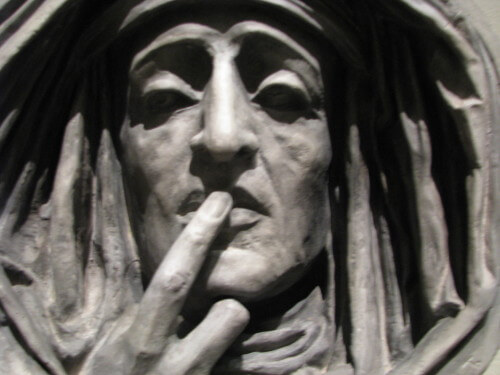I was in Baltimore the last time it burned. That was back in April 1968, after the assassination of Martin Luther King, Jr. Washington also burned at that time.
There was something surreal about the mood of the riots in both cities. The anger from African-American rioters seemed to be directed wholly against property.
I walked among the rioters, up 14th Street to the U Street Corridor, the commercial hub of the Shaw area of Washington. Later that day, I drove around Baltimore. They seemed to me to be an uncommonly respectful pair of riots.
In Washington, young African-American men directed me where to go safely; one looter, coming out of a shop on 14th and F Street, asked me if I needed anything, as though he were the proprietor.
Over the decades, I have wondered about those riots. I think they were indeed riots of anger as well as sorrow. King, the great civil rights leader, had been murdered, and already people knew there would not be another like him.
For days I drove around Baltimore, where I lived at the time, and Washington, where troops were patrolling and curfews were in place. With a large “PRESS” sign taped on my car’s windshield, I was allowed to drive around both cities, and I watched them come to grips with reality. A Washington Post writer described how a white motorist and a black motorist had waved each other through an intersection, both feeling they were doing something significant.
But Washington is not Baltimore. And, at that time, Baltimore was as segregated as any Southern city.
The proprietor of a bar near The Baltimore News-American, the Hearst newspaper where I worked, would shoo away blacks with this lie, “This is a private club and I can’t serve you, but I can sell you a bottle to go.”
I wanted to challenge this, and urged a black friend on the newspaper, Lee Lassiter, to come with me and make a stand. He averred, not because he was lacking in courage, but because he was fighting another battle over bars. Lassiter and other activists were trying to restrict the spread of cheap bars in the ghetto, where licenses were indiscriminately issued by a white board to white businessmen.
Unlike Washington which, in some ways, was a more secure community and where there was certain amount of integration, the whites in Baltimore took little interest in the blacks. There was no sense that they shared a city.
Baltimore’s politics were white; its sensibilities were white; and it was comfortably assumed that in the profusion of row houses, there were happy blacks, living a happy parallel life — although that term was not used. Not true then, and not true now.
This is a subjective comment, but I have always felt there is a kind of special dejection in the Baltimore ghetto.
While there was manufacturing, steel and shipbuilding and a car plant in Baltimore, guaranteeing good union jobs, there were pockets of prosperity. As these jobs faded in Baltimore, and other American cities, so did the hope for a route to the middle class for those in the ghetto.
As crime increased everywhere, it surged in Baltimore. Gun ownership shot up, mostly among ghetto youth.
Baltimore’s police – who probably felt the affect in their families, if not in their own aspirations, of the end of industrial prosperity — took out their frustrations on those who had even minor malefactions.
Men in uniform easily degenerate into bullies. I saw this in London. When a policeman and a suspect face off, after the policeman is sure that he is not facing an ambush, he has absolute power over the suspect. It is an intrinsically ugly moment: when the handcuffs click, justice and liberty are at bay. Later in court, or through a civilian review, those things may be re-established. But when the suspect is under lock and key, the police power is absolute — and it is absolutely corrupting.
Police officers go over the line often, and I have seen this all over the world. Race worsens things, but it is not a necessary ingredient.
It is sad for me that, 47 years later, Baltimore should have been torched by a mob. It is sad, too, that things in the row houses of Baltimore are as bad as ever, and that the mob is still the only voice black Baltimoreans think they have.
— For the Hearst-New York Times Syndicate

 Follow
Follow
Leave a Reply